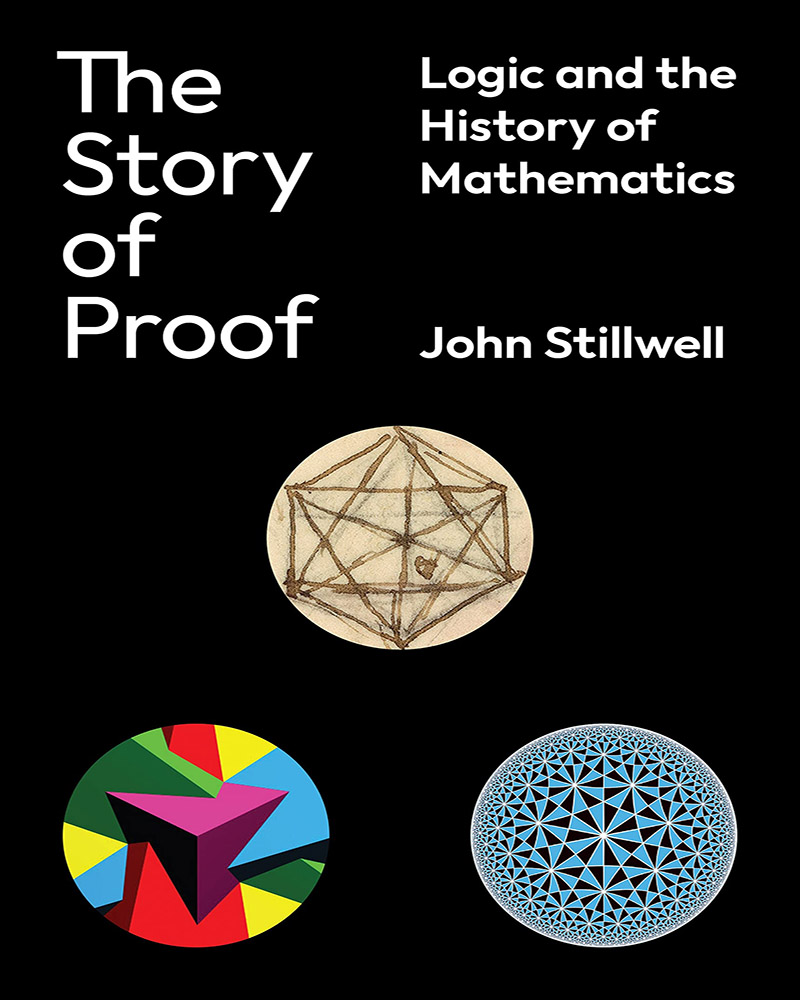How the concept of proof has enabled the creation of mathematical knowledge
The Story of Proof investigates the evolution of the concept of proof―one of the most significant and defining features of mathematical thought―through critical episodes in its history. From the Pythagorean theorem to modern times, and across all major mathematical disciplines, John Stillwell demonstrates that proof is a mathematically vital concept, inspiring innovation and playing a critical role in generating knowledge.
Stillwell begins with Euclid and his influence on the development of geometry and its methods of proof, followed by algebra, which began as a self-contained discipline but later came to rival geometry in its mathematical impact. In particular, the infinite processes of calculus were at first viewed as “infinitesimal algebra,” and calculus became an arena for algebraic, computational proofs rather than axiomatic proofs in the style of Euclid. Stillwell proceeds to the areas of number theory, non-Euclidean geometry, topology, and logic, and peers into the deep chasm between natural number arithmetic and the real numbers. In its depths, Cantor, Gödel, Turing, and others found that the concept of proof is ultimately part of arithmetic. This startling fact imposes fundamental limits on what theorems can be proved and what problems can be solved.
Shedding light on the workings of mathematics at its most fundamental levels, The Story of Proof offers a compelling new perspective on the field’s power and progress.















I bought my copy directly from the publisher, Princeton University Press, and did not see this problem at all.
In general:
This is a really excellent and much-needed book, cross-cutting between, and showing the inter-relations between, the various fields of mathematics which are usually taught (for good reason) in isolation from each other in the academic curriculum.
There is one omission I want to point out:
There is an excellent elementary introduction to category theory, assuming nothing more than high school math:
"Conceptual Mathematics" by F. William Lawvere and Stephen Schanuel.
So, Stillwell is overstating things when he writes in his Section 10.9
"category theory [necessarily?] involves a high level of abstraction, and background too advanced for a book such as this".
What I appreciate most about the book was how Stillwell relates the motivating problem of infinity in mathematics (and physics) to the many different branches of the field, and what these fields considered to be acceptable proof for a given mathematical idea.
If you have a love of maths, and are curious about the inner workings of the field, this is a great book for you.